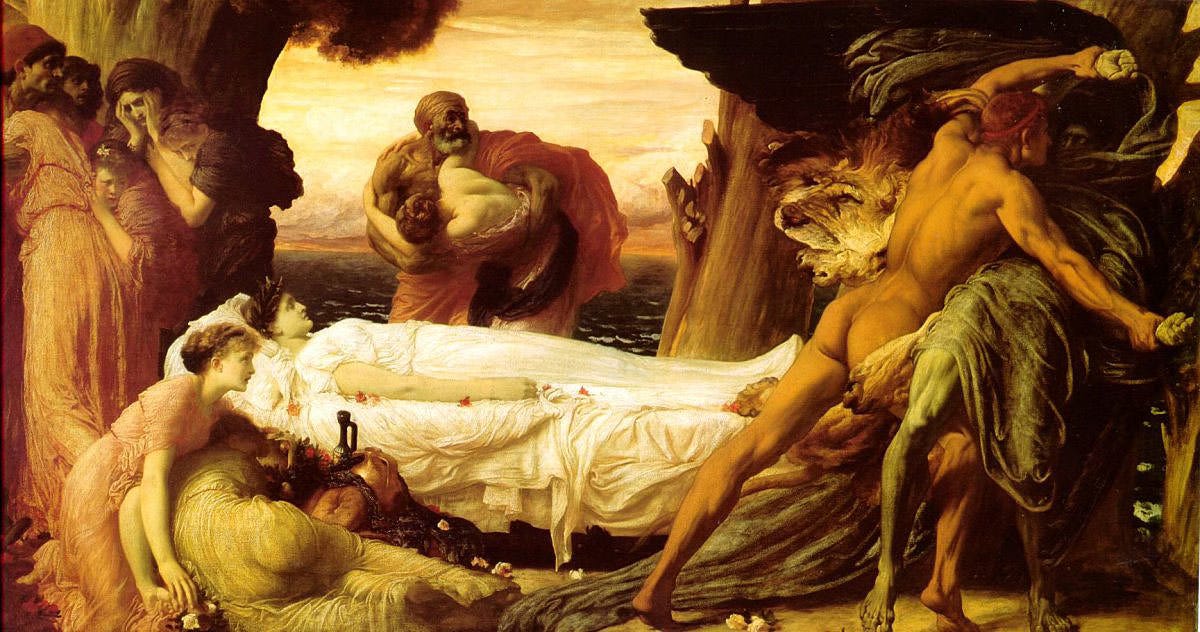Canvas Conversations: Alcestis by Euripides
Telling a Tragedy through Art
This is the first installment of a new series exploring great works of literature through art. I'll use paintings to retell the story, helping you recall classic books and navigate museum exhibits.
Alcestis by Euripides (438BC)
Hercules Fighting Death to Save Alcestis by Frederic
Let's use this artwork by Frederic Leighton to describe the Alcestis tragedy by Euripides:
Here lies Alcestis, who exchanged her life for that of her husband Admetus. The god Apollo had been forced by his father Zeus to work for Admetus as a hired laborer. Apollo found Admetus honorable and so tricked the Fates so that he could escape Hades. But someone else had to give their life in Admetus’ place to save him. His wife Alcestis sacrificially took his spot.
In the painting, Admetus is bent over in grief behind her. His father comforts him. But his father also should have died instead of Alcestis. We see him staring absently into the distance. The play presents the following Greek cultural norms:
The wife was expected to sacrifice unto death for her husband.
The father was not expected to sacrifice for his son. In fact, Admetus’ father Pheres says this - “I’m not obliged to die for you - this is not a Greek tradition.”
The children and others grieve on the left side. Not only did Admetus lose his wife in this death exchange, their children lost their mother. Admetus lost all. I find it interesting that most of the grieving faces are fully or partially hidden except for one child who look in hope at Heracles fighting death (more below).
During the grieving of Alcesis, Heracles arrives at the house of Admetus in good spirits and proceeds to get drunk. When he finds out what has happened, he feels terrible and vows to reward Admetus’ hospitality.
Heracles battles and defeats Death on the right side to rescue Alcestis from Hades and raise her from the dead. This is Admetus’ reward and it is the first instance of resurrection I've come across in Greek Literature. In the painting, you can see a lion skin to the left of Heracles. He was known for wearing the head and skin of a lion he killed.
Here’s my latest podcast episode for more about Alcestis by Euripides.




